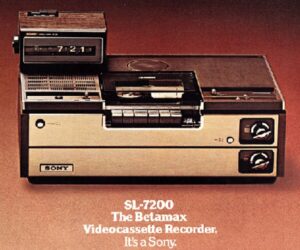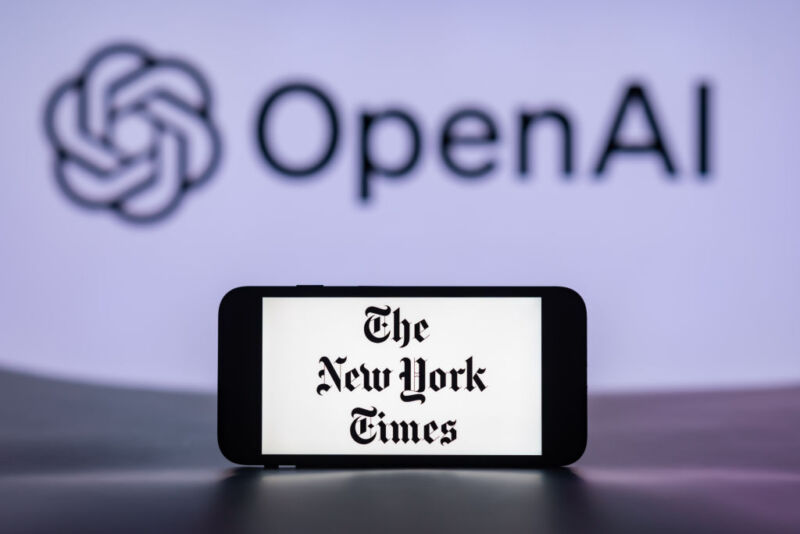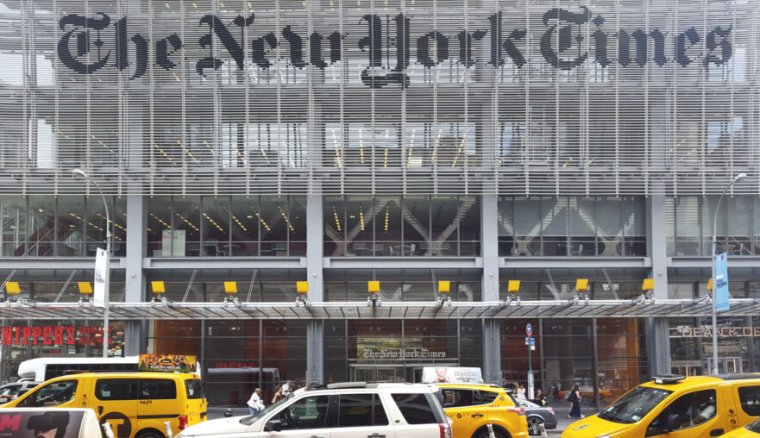-
chevron_right
‘The New York Times Needs More than ‘Imagined Fears’ to Block AI Innovation’
news.movim.eu / TorrentFreak · Friday, 29 March - 22:52 · 3 minutes
 Starting last year, various rightsholders have filed lawsuits against companies that develop AI models.
Starting last year, various rightsholders have filed lawsuits against companies that develop AI models.
The list of complainants includes record labels, book authors, visual artists, and even the New York Times. These rightsholders all object to the presumed use of their work to train AI models without proper compensation.
The New York Times lawsuit targets OpenAI and Microsoft , who have both filed separate motions to dismiss this month. Microsoft’s response included a few paragraphs equating the recent AI fears to the doom and gloom scenarios that were painted by Hollywood when the VCR became popular in the 1980s.
VCR Doom and Gloom
The motion to dismiss cited early VCR scaremongering, including that of the late MPAA boss Jack Valenti, who warned of the potentially devastating consequences this novel technology could have on the movie industry.
This comparison triggered a reply from The Times, which clarified that generative AI is nothing like the VCR. It’s an entirely different technology with completely separate copyright concerns, the publication wrote . At the same time, the company labeled Microsoft’s other defenses, including fair use, as premature.
Before the New York court rules on the matter, Microsoft took the opportunity to respond once more. According to the tech giant, The Times took its VCR comparison too literally.
“Microsoft’s point was not that VCRs and LLMs are the same. It was that content creators have tried before to smother the democratizing power of new technology based on little more than doom foretold. The challenges failed, yet the doom never came.
“And that is why plaintiffs must offer more than imagined fears before the law will block innovation. That The Times can only think to dodge this point is telling indeed,” Microsoft added.
‘No Copyright Infringements Cited’
For the court, it is irrelevant whether the VCR comparisons make sense or not; the comparison is just lawsuit padding. What matters is whether The Times has pleaded copyright infringement and DMCA claims against Microsoft, sufficient to survive a motion to dismiss.
The Times argued that its claims are valid; the company asked the court to move the case forward, so it can conduct discovery and further back up its claims. However, Microsoft believes the legal dispute should end here, as no concrete copyright infringements have been cited.
“Having failed to plausibly plead its claims, The Times mostly just pleads for discovery. But the defects in its Complaint are too fundamental to brush aside. The Times is not entitled to proceed on contributory infringement claims without alleging a single instance of end-user infringement of its works,” Microsoft notes.

More Shortcomings
Similar shortcomings also apply to the other claims up for dismissal, including the alleged DMCA violation, which according to Microsoft lacks concrete evidence.
As highlighted previously, The Times did reference a Gizmodo article that suggested ChatGPT’s ‘Browse with Bing’ was used by people to bypass paywalls. However, Microsoft doesn’t see this as concrete evidence.
“This is like alleging that ‘some online articles report infringement happens on Facebook’. That does not support a claim. The Times cannot save a Complaint that identifies no instance of infringement by pointing to a secondary source that identifies no instance of infringement.”
Similarly, allegations that The Times’ ChatGPT prompts returned passages of New York Times articles isn’t sufficient either, as that’s not “third-party” copyright infringement.
“The Times is talking about its own prompts that allegedly “generated … outputs … that … violate The Times’s copyrights.’ An author cannot infringe its own works,” Microsoft notes.
Microsoft would like the court to grant its motion to dismiss, while The Times is eager to move forward. It’s now up to the court to decide if the case can progress, and if so, on what claims.
Alternatively, the parties can choose to settle their disagreements outside of court but, thus far, there’s no evidence to suggest that they’re actively trying to resolve their disagreements.
—-
A copy of Microsoft’s reply memorandum in support of its partial motion to dismiss, submitted at a New York federal court, can be found here (pdf)
From: TF , for the latest news on copyright battles, piracy and more.
 “The VCR is to the American film producer and the American public as the Boston Strangler is to the woman home alone.”
“The VCR is to the American film producer and the American public as the Boston Strangler is to the woman home alone.”





